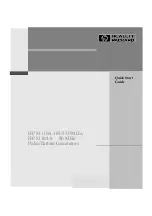
3
1
Installation
NOTE: PRIOR TO POWERING TOOLS AND EQUIPMENT MAKE SURE THE
GENERATOR’S RATED VOLTAGE, WATTAGE AND AMPERAGE CAPACITY IS
ADEQUATE TO SUPPLY ALL ELECTRICAL LOADS THAT THE UNIT WILL
POWER. IF POWERING EXCEEDS THE GENERATOR’S CAPACITY, IT MAY BE
NECESSARY TO GROUP ONE OR MORE OF THE TOOLS AND/OR EQUIPMENT
FOR CONNECTION TO A SEPARATE GENERATOR.
Electrical and other permits may be required for the installation of emergency power systems.
Investigate your local building and electrical codes before installing this unit. Installation must be
completed by licensed contractors.
WARNING! THE GENERATOR WEIGHS APPROXIMATELY 220 POUNDS. USE
CARE AND THE PROPER LIFTING OR HOISTING EQUIPMENT WHEN MOVING
IT TO THE INSTALLATION LOCATION. ALWAYS CONNECT HOIST LINES TO
THE FRAME OF THE GENERATOR.
General Location
•
Make sure to locate and install the generator outdoors where cooling air is readily available.
•
Install the generator so that the air inlets and outlets are not blocked by obstructions such as
bushes, trees, or snow drifts. Locating it in the path of heavy winds or snowdrifts may require
the placement of a barrier for protection. In normal weather conditions, the air vent should face
the prevailing wind direction.
•
Install the generator on a concrete slab or other area where rain drainage or flood waters can
not reach it.
•
Generator placement should allow four feet of access to all sides for maintenance.
•
Place the generator as close as possible to the electrical tools and equipment being powered to
reduce the length of extension cords.
Owner’s Manual
















































